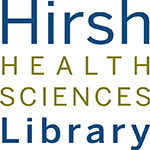*Open Access Week 2020* Diversity, Equity, and Inclusion: The Role of Open Access
If you’re looking for yet another example of structural racism, discrimination, and exclusion, look no further than our traditional publishing system, which perpetuates inequitable restrictions on viewing, sharing, and building upon the research literature. So, what opportunities exist to combat these forces?
For years, open access has been disrupting these norms and shattering the myth that locking articles behind paywalls is an effective means to communicate research. Open access, in its most basic definition, is making research literature freely available on the Internet with few copyright or license restriction. Open access journals take advantage of a variety of business models to financially support the value-added elements that publishing provides without sacrificing readership, collaboration, and innovation in its place.
We are celebrating Open Access Week October 19th – 25th this year. In honor, join our open workshop, Where to Publish Open Access, and learn about finding open access journals to publish your work in (and do other things, like get involved in the editorial boards or become a peer reviewer). We’ll talk about some general tips for identifying suitable journals, as well as specifically how to find appropriate open access publishing opportunities.
Post contributed by Judy Rabinowitz
Recent Posts
Categories
- 4th Floor Tabling (3)
- affiliation (4)
- Announcements (353)
- Book/Resource Reviews (117)
- Hours (131)
- Interviews (4)
- New Titles & Resources (114)
- News & Events (266)
- Open Workshops (48)
- Outside News & Events (66)
- resources (18)
- throwback thursday (5)
- Tips & Tricks (135)
- Uncategorized (148)
Tags
4th floor affiliation books Boston circulation crafts electronic resource electronic resources events exams extended hours food fun fun lab funlab graduation HHSL Hirsh Health Sciences Library holiday holiday hours holidays hours leisure reading library fun lab library service desk library staff new books open access open access week open workshop Open Workshops reserves resources staff statistics summer survey tea Thanksgiving therapy dogs Tufts Hirsh Health Sciences Library website welcome! writing consultants writing helpFollow us @TuftsHHSL!
Twitter feed is not available at the moment.






